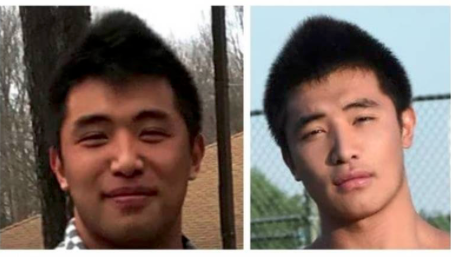
Buoyed by their anti-affirmative action arguments on behalf of Asian American applicants to Harvard, Students for Fair Admissions has opened another front at the University of North Carolina-Chapel Hill.
SFFA, led by long-time affirmative action opponent Edward Blum, seeks to end race-conscious admissions at both universities. In their briefing, SFFA suggest that in addition to Whites, Asian Americans are also supposedly disadvantaged by UNC’s race-conscious admissions policy.
Blum said the group’s filing contain calculations from an expert witness saying an Asian American male applicant from North Carolina with a 25% chance of getting into the school would have his probability increase to about 67% if he were Latino. It would rise to more than 90% if he were African American.
Asian Americans Advancing Justice, an affiliation of five civil rights organizations, alongside over 60 Asian American groups and 25 professors, with Fox Rothschild LLP filed an amicus brief today in support of race-conscious holistic admissions at UNC. Participants in this brief whole-heartedly attest that race-conscious admissions policies result in more equitable and integrated universities and enhance the educational experiences of all students.
LATEST STORIES
UNC-Chapel Hill, which wants U.S. District Judge Loretta Biggs to hold a hearing on its dismissal motion, says there are no racial or ethnic quotas in the admissions process, and race is one of many factors considered.
“No reasonable trier of fact could conclude on this record that the university uses quotas, engages in racial set asides or point allocations, or intentionally discriminates against applicants based on race,” the school’s brief said.
“In its academic judgment, the university has determined that pursuing the educational benefits of diversity is integral to fulfilling its mission to prepare the next generation of leaders,” the school’s brief continued..
More than 4,300 first-year students entered UNC-Chapel Hill last fall, with over 43,000 first-year applications filed.
“A ‘color-blind’ admissions policy is not race-neutral; it merely reinforces racial segregation and widens existing disparities in educational opportunities for people of color, including many Asian Americans and Pacific Islanders (AAPIs),” said Nicole Gon Ochi, supervising attorney at Asian Americans Advancing Justice – Los Angeles. “We refuse to be used as a weapon to dismantle programs that increase opportunities for students of color.”
The consideration of race in university admissions, one of many factors in the admissions process, has been critical for many schools to fully understand an applicant’s background and experiences beyond test scores.
“The data shows that these policies help all students of color, including Asian Americans,” said Dr. OiYan Poon, assistant professor of Higher Education and director of the Race & Intersectional Studies for Educational Equity (RISE Center) at Colorado State University. “Removing the consideration of race in admissions would hurt the most marginalized of AAPI students and be detrimental to the educational climate and environment, from which all students benefit.”
Race-conscious admission policies have been credited with offsetting the inherent racial biases of other admission factors, such as SAT/ACT scores. They are also a factor in creating more diverse student bodies on university campuses that more closely reflect regional or national demographics. Studies show that colleges and universities that reach the highest levels of diversity have fewer incidents of racial hostility. Students report having a more positive learning experience in schools with race-conscious admission processes.
Mainstream media coverage of
the Harvard case may have given the impression that the majority of the
AAPI community was against affirmative action. In actuality, there is
overwhelming support for affirmative action.

“Removing the consideration of race at UNC would be a disservice to all communities of color, including the diverse AAPI subgroups in North Carolina,” said Chavi Khanna Koneru, executive director of North Carolina Asian Americans Together. “Our state is home to significant ethnic minority communities from Southeast Asia who experience varying economic and educational barriers. Saying that Asian Americans are not underrepresented minorities at UNC only obscures the needs of underrepresented Asian Americans.”
“The growing Southeast Asian
community in our state is not a monolith; each student deserves the
holistic review long prized by our state’s flagship university,” said
Matthew Nis Leerberg, North Carolina-based partner at national law firm
Fox Rothschild LLP.
The
case against Harvard’s admission policies has already gone to court and
a ruling is expected any day. Like the Harvard case, UNC’s case is
expected to be appealed all the way to the U.S. Supreme Court.
AsAmNews has Asian America in its heart. We’re an all-volunteer effort of dedicated staff and interns. Check out our Twitter feed and Facebook page for more content. Please consider interning, joining our staff or submitting a story.








